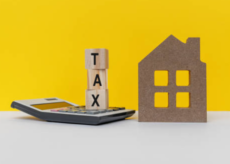2022: 7 Steps to Get Rid of Credit Card Debt

2021 is gone. And it’s definitely a temptation to pay off your credit card debt in the first month of the 2022 in installments. However, do you know that, the problem will escalate when this temptation goes out of control, because credit card debt is among the most expensive in the world.
But there’s no need to despair. By following a few guidelines, you will know how to negotiate credit card debt and abandon debt in 2022.
There are many who cannot pay the total amount of the bill and decide to push the debt forward use the so-called revolving credit card, which has rates three figures per year. The problem is that every month, interest is charged on interest, generating a kind of snowball.
7 steps to fix a credit card debt
Now you know what happens if you don’t pay your credit card bill, you need to pay it off urgently. Since the interest rates charged make the debt grow crazily in a short time.
Negotiating a pending financial issue is not always easy, but some actions can help you get out of the red. Here’s how to pay off your credit card debt can be simpler by following a few steps:
1. Know exactly how much you owe
When you know you owe, the first step is to contact your credit card issuer and get total effective cost of the debt. Only then you will have the real value of how much you owe. This information is your right and the financial lenders has an obligation to provide it.
Take the opportunity to check if you have other bills in arrears. Make a sum of everything and see how much you would need to pay everything in cash. This applies especially to those who have more than one card, which can be credit or debit.
In situations of financial imbalance, it is common to use the limit available on one card to pay off another, which creates a false sense that everything is under control.
2. Take an X-ray of your financial situation
Now that you know the size of your debt, you need to understand your budget to figure out how much you can set aside each month to pay off your credit card debt. Then, take the time to organize your finances calmly.
Choose a method of financial management. You can write down your expenses in a notebook, an Excel spreadsheet, or even a specific application for personal finance. The important thing is to keep track of all your earnings, fixed and occasional expenses.
If you don’t have one yet, you can download a free spending spreadsheet available on the internet. Or the best option is to use Google spreadsheet and start organizing your accounts.
In this process, it is also important to do a self-evaluation to understand what has caused your lack of financial control.
Comb through your bills and see exactly when the carelessness or lack of control happened. Understanding the origin of the debt is important to prevent the same problem from happening again in the future.
3. Make the first contact with the credit card issuer
After knowing the interest of the credit card debt and how much you can pay per month to pay it off, the card holder has more security to negotiate the debts and can talk to the card provider to know the conditions it offers.
At this moment, the ideal is to leave anxiety aside and be very realistic. Many times, card holders are in a hurry to pay their bills and end up accepting conditions that do not fit their financial reality.
Be careful to avoid paying in installments that compromise the budget.
4. Evaluate the negotiation proposal carefully
Paying off an expensive debt, such as a credit card debt, is a task to be accomplished as soon as possible.
If the amount agreed upon in the negotiation doesn’t fit in the budget, the card issuer may get into trouble again and not be able to get out of bad debt.
So, think calmly. Didn’t fit in your pocket? Call the card issuer again and renegotiate the card debt.
5. Cut expenses
Remember: if the bill doesn’t close at the end of the month to the point that you can’t pay your credit card bill, it is a sign that you are spending more than you earn.
The solution is to cut unnecessary expenses and reduce, or at least reevaluate, what cannot be eliminated.
Set a limit for some expenses such as supermarket shopping and leisure. This will help you keep control of your finances. Don’t stop having fun, but look for cheaper ways to have fun that weigh less on your pocket.
Check out: How to consolidate credit card debt
6. Avoid new purchases in installments
Another important point is to avoid new purchases in installments, especially during this period of financial debt.
Installment payments are easy, because they allow the acquisition of goods that, if they were bought in cash, would consume a good part of the monthly budget. However, endless installments can lead to financial decontrol.
First of all, check if you really need what you are buying or if this purchase can be postponed.
If it is really important for the moment, only pay in installments for big-ticket items that you could not get a discount for by paying cash. The other smaller purchases, pay cash or in shorter installments.
7. Exchange expensive debt for cheaper debt
If the credit card company’s negotiation proposal is not advantageous, make new negotiations or look for cheaper alternatives if you realize that the agreement will be too complex. This way, instead of the abusive interest installment, you can pay healthy installments that fit into your budget.
It is always worth comparing other types of credit before closing the deal. In the market there are credit options with low interest rates, such as payroll loans and secured loans, which are excellent alternatives to exchange an expensive debt for a cheaper one.
But remember: When exchanging an expensive debt for a healthy loan, the ideal is that the new installment should not compromise more than 30% of your monthly income.
Author Bio:
I am Nikesh Mehta, owner and writer of this site.

I’m an analytics and digital marketing professional and also love writing on finance and technology industry during my spare time. I’ve done online course in Financial Markets and Investment Strategy from Indian School of Business. I can be reached at [email protected] or LinkedIn profile.



